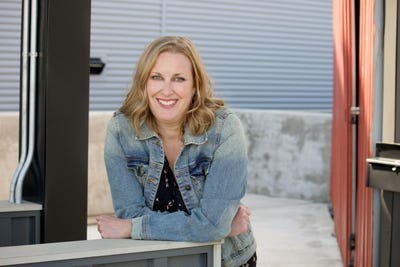College dining chef to watch: Jack Mazzacavallo, chef at Central Washington UniversityCollege dining chef to watch: Jack Mazzacavallo, chef at Central Washington University
Jack Mazzacavallo, campus sous chef, Central Washington University, talks about moving from commercial dining to college dining, Thai barbecue, menu development and whether or not it’s necessary to go to culinary school.
Tara Fitzpatrick
The college and university dining world is often ahead of the trends—think plant-based food and global flavor—and at Central Washington University, the game is getting raised daily. Jack Mazzacavallo, campus sous chef, places value in considering his audience when planning menus, trying new ideas from the commercial restaurant world and not putting a huge emphasis on the bumps along the road.
Mazzacavallo’s favorite advice from another chef is the simple, but effective sentence: “It’s just dinner.” Keeping that in mind while staying organized and maintaining a visible presence in the kitchen has been the way to go for helping this chef create new dining experiences for students at this Pacific Northwest school. There’s always more to learn and Mazzacavallo intends to keep himself and his team learning as much as possible. Find out his philosophy on being a chef, predictions for food trends in the new year and more.

Jack Mazzacavallo, campus sous chef, Central Washington University, Ellensburg, Wash.
Early life: Erie, Pa., then Camas, Wash., at the age of 12
Becoming a chef: “I feel like I’m still trying to figure that out. I guess I got to where I am now with hard work and mentorship. As a younger cook, I had the pleasure of working for skilled and experienced chefs who understood the importance of instilling ethics and sharing knowledge with the new generation of cooks. I’m not sure if I would’ve pursued a career in this field if I didn’t receive the encouragement and support I had in my early 20s.”
What it means to be a chef: “Spending time in the kitchen is very important. Beyond staying sharp, a big part of the leadership element is hands-on coaching, training, educating. I think the harder side of the balance is finding time to spend in the office for the administrative side of the job.”
Starting the workday: “Every day is a different routine based on where my support is needed. I stay focused with lots of handwritten notes and lists, several cups of coffee and the support of the staff here. I’ve never been one for breakfast; I always eat lunch on campus.”
Approaching menu development: “Start with the big picture. Whose menu is it going to be? What is their expressed desire? What are the goals of the menu? What’s the target audience? Once I have the basic structure, I look at the scope and limitations of the kitchen. The equipment, space, skills and experience of the staff.”
Making your mark: “Aside from the obvious influence of creating menus and writing the recipes that our cooks use, I am helping the leadership at Central establish more culinary depth in our kitchens on campus. Our executive chef and I are both new to college and university dining. With our work in the private sector, we’re bringing a combined set of knowledge and experience that has been unique to what the staff here has seen before. We’re using that knowledge to elevate the skills of our staff as well as the variety and quality of the product we serve.”
Best advice from a mentor: “It’s only dinner.”
Favorite celebrity chef: Jacques Pepin.
Favorite book: “Down and Out in Paris and London.”
Memorable recent meal: “The best meal I’ve had lately was at EEM in Portland. It’s a kind of mash-up of Thai and barbecue. They absolutely nailed every dish I had, so I went back for seconds about a month later and they did it again.”
Go-to fast food: “Hoagies and grinders. I’ll eat anything between two pieces of bread.”
Best pre-ski breakfast: “I still love to swing through a McDonald’s drive-thru for breakfast before a day of skiing.”
Culinary school: yay or nay? “I’m not a big advocate for culinary school. There really isn’t a substitute for practical experience in this industry and I’ve never known a chef to look for a culinary degree over a kitchen work record. It makes no sense to me to put yourself in debt to start at a near minimum wage job.”
Trend predictions for 2020: “I expect we will continue to see a lot more flexitarian cuisine. Pea proteins, blended meats and alternatives, vegetable-forward dishes with a lighter focus on animal protein.”
Bucket list location: “The Netherlands and Northern Europe aren’t places that have really been on my radar for travel, but I’ve always wanted to see the Van Gogh museum in Amsterdam.”
Late-bloomer tastes: “I don’t know if I ever really ate Thai food until I was an adult; now it’s hard to go without!”
About the Author
You May Also Like




.jpg?width=300&auto=webp&quality=80&disable=upscale)

